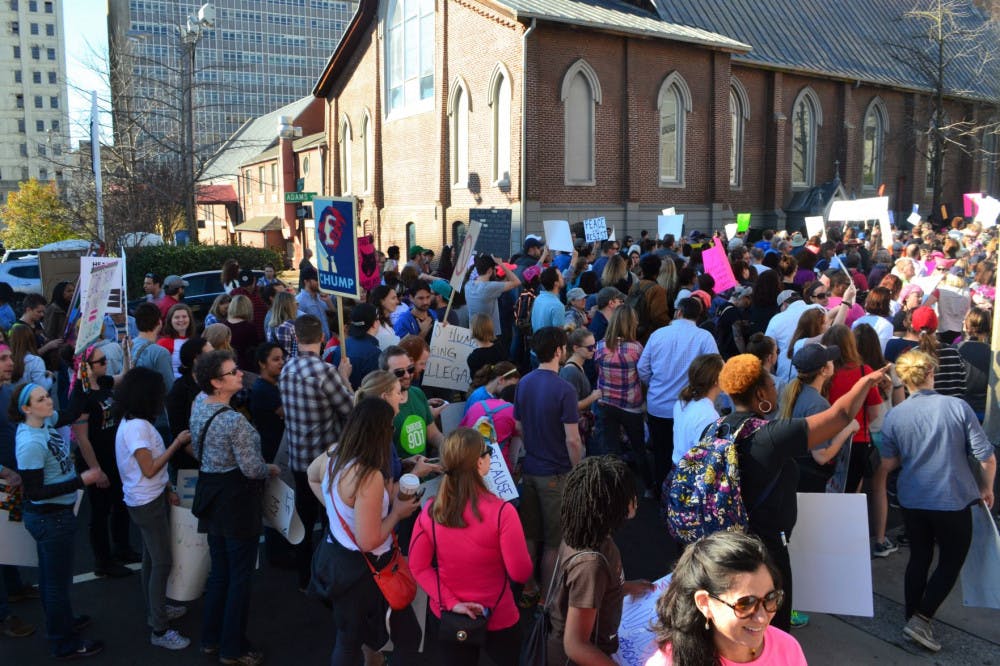When the organizers of the Women’s March in Washington, D.C., announced on social media the inauguration weekend event, they did not expect more than 500,000 marchers to show up.
The rally in the nation’s capital Jan. 21 spread quickly to other cities in the United States. That day saw about 1 million marchers in Washington, D.C., and 5 million total around the world, according to information released by the Women’s March on Washington.
March participants represented women and men of various ages, races and religions who championed a myriad of issues, including rights for women, minorities, immigrants, LGBTQIA+ and climate change.
“It is going to take all of us to stay vigilant against the constant attacks we are undergoing as a society,” Sondra Tucker, co-organizer for the Memphis Women’s March, said. “The march was a big event worldwide, but the work began right after the march ended. Until everyone is free, none of us are free.”
In numbers not seen since the 1960s, women in America are coming together to stage peaceful protests in response to what they perceive as threats against minority groups and women from President Donald Trump’s administration.
Vice President Mike Pence threatened to cut federal funding for Planned Parenthood, which many view as trying to control women’s abilities to make decisions about their own bodies.
“The right of bodily autonomy is one of the most important fundamental human rights, and I constantly see that being striped,” said Heather Jendoubi, a sociology graduate student at the University of Memphis and member of the Memphis Feminist Collective.
The women’s marches became global movements that inspired many women and men to raise their voice and fight for human rights. On Feb.1, Memphians marched from Clayborn Temple to the National Civil Rights Museum to protest Trump’s first immigration executive order.
“I was stunned and humbled by the diversity of people from different faiths, races and backgrounds,” JoAnna Boudreaux, a sociology graduate student who participated in the Memphis immigration march, said. “Also, I noticed Muslim women becoming increasingly politically active.”
A nationwide protest called “A day without Immigrants” on Feb. 16 aimed to show the new administration the positive effect immigrants have on the economy. Many immigrants around the country stayed home, closed their businesses and avoided spending money.
On March 8, the Women’s March organization planned an international women’s strike, “A day without a Woman”. All women could join the movement by taking a day off from work, avoiding shopping for one day or just wearing red in solidarity with the women’s strike, according to the Women’s March on Washington.
Historically, protests in America have been keys to social progress such as women’s suffrage and the legalization of birth control, Robert Byrd, journalism professor at the U of M and expert in gender studies, said.
“Protests change the narrative of the policies,” Byrd said. “The news media are forced to talk about the opposition view, which in turn changes the conversation…The bigger the protests, the more coverage, the more conversation will hopefully lead to more change.”
Protesters gather in downtown Memphis to advocate for women's rights. The marchers joined a nationwide protest Jan. 21.




